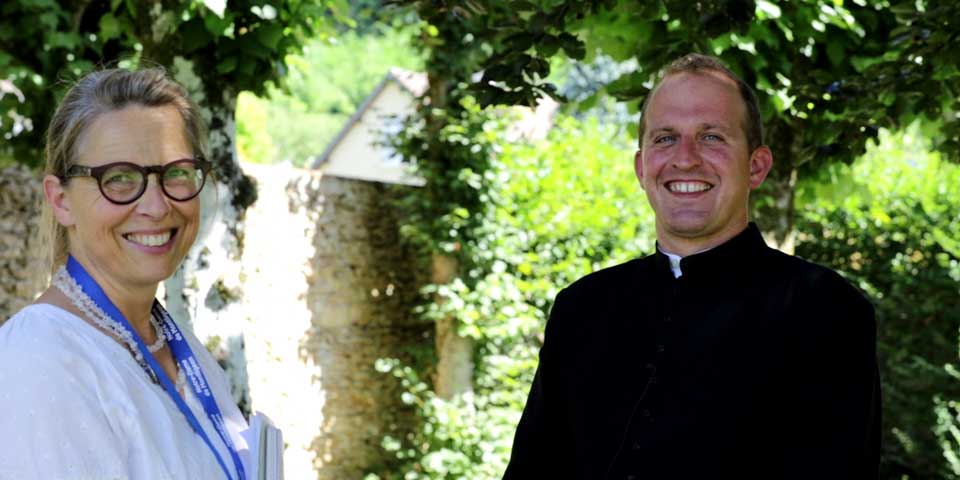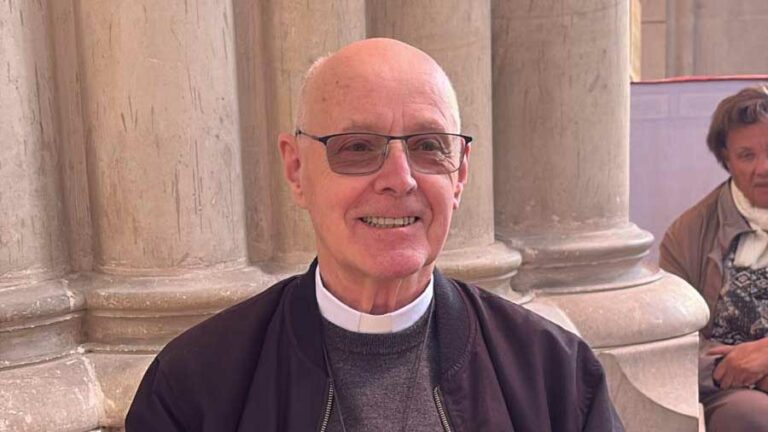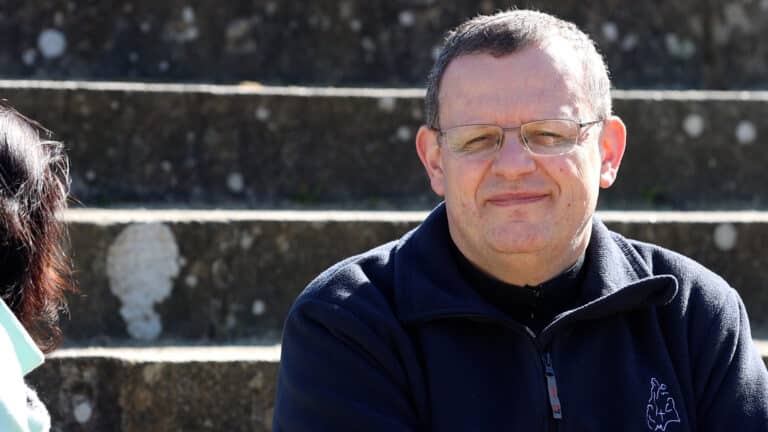We only but just celebrated All Saints Day on 1st November, followed by All Souls Day on 2nd November. A great opportunity to revisit fundamentals of our faith in eternal life : death, individual judgement, last judgement, heaven, purgatory, hell, enfer, salvation and end of the world (individual eschatology and general eschatologie )… The Four Last Things are not so much talked of, yet Christ did and several times.
Finally, we are determined not to believe in our own death.
The climate is going haywire, we are subjected to pandemics, wars and other calamities…. The topic of the ultimate destiny of the world and of humankind permeates all monotheistic religions. So, after this cosmic eschatology and our own death, are we all called to resurrection, following in Christ’s footsteps?
Here are the questions we asked Fr. Paul Denizot, rector of the shrine:
- If we are to be judged at the end of our life, what criteria can we use to review our acts and feelings?
- What is this time about that we say is between earthly time and the time of God?
- Are my soul and body to be affected by such a time may it be purgatory, hell or the communion of saints?
- Is God the accountant of my sins?
- What can I do, right now, in my present life to have a taste tof he Kingdom?
General eschatology and individual eschatology
General eschatology relates to the end of the world, marked by marked by the return of Christ, the resurrection of the dead and the Last Judgment. On the other hand, individual eschatology deals with the death of each individual, heaven, purgatory and hell.
“What the Four Last Things are all about has to do with exactly that: individual eschatology and general eschatology.”
At the core of the Last Four Things: judgement
Judgment occupies a central place with regard to the Last Four Things. It manifests itself in two ways: the individual judgment at the moment of each one’s death, and the final judgment, at the return of Christ. The consequences of these judgments vary: heaven for the righteous souls, purgatory for those in need of purification, and hell for those who have chosen to distance themselves from God. Our personal freedom and our choice for love whilst on this earth, and then, once more, at the moment of our death, is the key for it is on love that we will be judged.
Christian hope in the midst of crisis
In a world of patent crisis, anxiety and uncertainty, the thought of Christ’s return brings a notion of hope. This expectation epitomises a happy ending, a renewal of creation. It promises that, despite the difficulties we may encounter, God has the last word.
Love at the heart of the Last Four Things
Love plays a fundamental role as far as the Last Four Ends are concerned. Brotherly charity is a powerful means of anticipating the Kingdom of God, even when confronted to trials. Small acts of love, forgiveness, gratitude and thoughtfulness are essential. Such simple gestures embody charity and bring souls closer to the divine Kingdom.
The mystery of time with regard to the afterlife
The concept of time with regard to the afterlife remains mysterious. Souls in purgatory or in hell exist in a different kind of time from the one we experiment here on earth. This “perceived time” can seem long for souls in hell, plagued by suffering and hatred.
Hell, purgatory, heaven :
our playlist for YouPray
With Fr. Paul Denizot, rector of the shrine of Montligeon.




